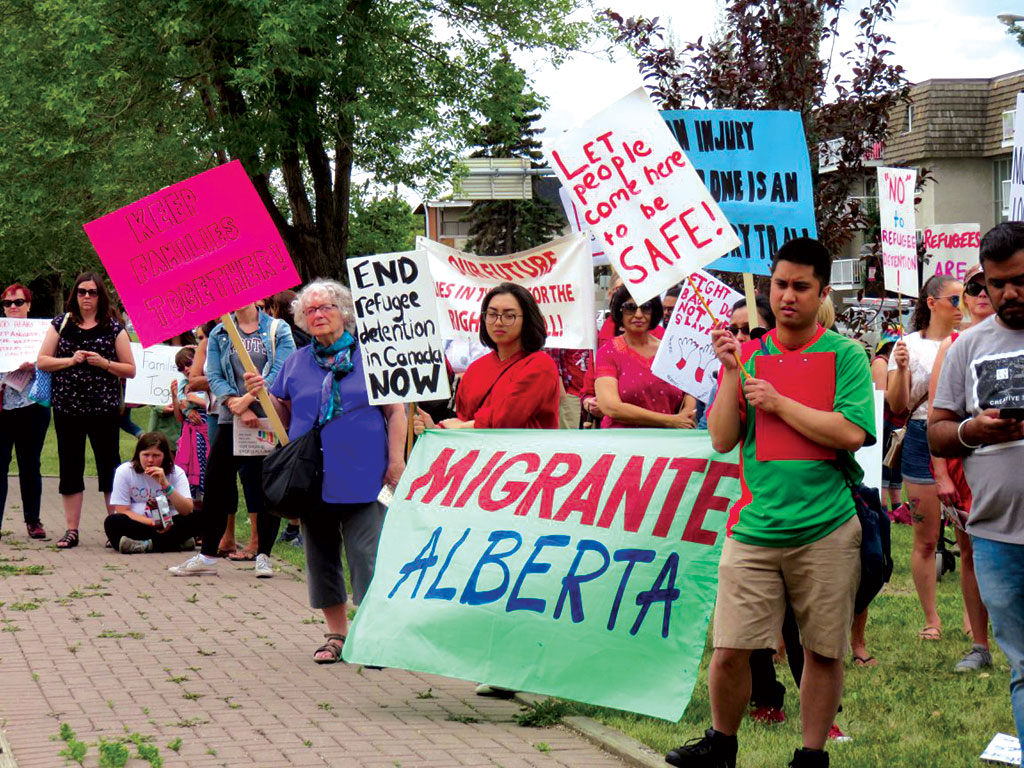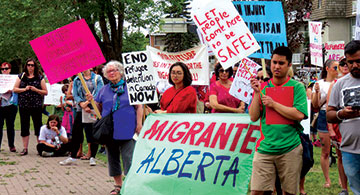Since April, there has been a global protest on the United States’ Zero Tolerance Immigration Policy. This means, “zero tolerance” for people crossing the US borders illegally. An American research think-tank, Pew Research Centre estimated the total population of undocumented Americans was 11.1 million in 2014. That is approximately 3 percent of the total U.S. population. The enforcement of the new law was done by the US’ Immigration and Customs Enforcement or ICE.

Officers of ICE have been busy picking up children of migrants and detaining them. The US Department of Health and Human Services reported that there are now 2,053 children detained and separated from their families.
How does it work? Once a parent has been held and charged for illegally entering the U.S., the children are then moved to the Department of Health and Human Services’ (HHS) Office of Refugee Resettlement (ORR), which is “responsible for their care”. It is also required by law to place unaccompanied minors in the least restraining environment. The child can also be placed in the care of their relatives in the U.S.; however, a minor may be put into foster care or a temporary detention center as in most cases.
The issue however, is beyond the forcible separation of families. It was also the issue criminalization of migrants and their children. These children, as young as 5 years old, were treated like common criminals. It’s not very surprising how all these happened though. When President Donald Trump signed his executive order on immigration enforcement in the early part of 2017, it blurred the lines between illegal immigrant and a person with a serious criminal conviction. In the executive order, it prioritized deportation of:
•Anyone with any criminal conviction, no matter how minor;
•Anyone with any pending criminal charge, even if it hasn’t been resolved;
•Anyone who has committed an act for which they could face charges, even if they haven’t been charged;
•Anyone who has previously received a final deportation order;
•Anyone who has committed fraud in any official matter, or who has “abused” any program related to the receipt of public benefits;
•And anyone who an immigration agent decides is a threat to public safety or national security.
Canada is no better
While Canada does not separate children from their parents outright, it does arbitrarily detain migrants, leaving detained parents faced with the difficult decision of surrendering children to foster care or bringing them inside detention centres with them. Currently, it is reported that there are 155 detained minors in Canada.
A couple of years ago, prior to the election of the Liberal government, the Conservative government was very clear that their prospective immigrant must be young, healthy, very educated and financially well-off, most likely from another western country. This means that if you were a caregiver, a temporary foreign worker or a parent or grandparent wanting to reunite with their children, it would be close to impossible to become a permanent resident. Jason Kenny, the former federal Minister of Immigration who is now the leader of the United Conservative Party in Alberta is the brains and implement or of these anti-immigrant policy changes.
The Philippine experience
For Filipinos today, family separation and migration are nothing new. The oil boom in the Middle East coupled with the Philippine economic crisis during the Marcos dictatorship forced Filipino men to work abroad. They left their families to work in oil fields and service sectors. In the 80’s the demographic changed from men to women workers in service industry and domestic labour. Based on statistics from the non-governmental sectors (NGO), approximately nine million Filipino children under the age of 18 are left behind by one or both parents to work temporarily or live abroad permanently.
The economic benefits of migration are no doubt valuable for the country’s economy. Every year, Filipino migrants send approximately US$21 Billion through dollar remittances. For Filipinos in Canada, their part is US$ 1.4 Billion per year. These monies temporary help improve the quality of life of the migrants and their families. However, a more permanent solution must be put in place to stop people from leaving and families separating because of the dire need to survive.
The significant elements such as physical, mental, moral and social aspects of living of children left behind are being neglected.
Social Cost
In the article “Migration and Filipino Children Left Behind: A Literature Review”, author, Prof. Melanie Reyes said that “although remittances give way to a better standard of living for migrant families and good education opportunities for the children, the unfortunate impact of migration to families left behind is immeasurable”. Absentee parents have resorted to smart phones and apps such as Viber, Skype etc. as a tool for virtual parenting. Prof Reyes added “(However, this) will still not replace the emotional bonding that can develop in the relationship when they are physically present. At the same time, they will miss the growing up years of their children and their value formation. Though family separation may not necessarily lead to extreme cases of emotional disturbance and delinquency among children, children have different levels of acceptance and tolerance of the migration depending on their cognitive development,” she said.
Many families in the Filipino community were separated for a minimum of 3 years. For some, it has been more than 15 years. Reunification on the other hand, is not always a solution to the effects of separation. In many cases, reunification for moms that carry a deep guilt of leaving their children behind to take care of other people’s kids and children who have already become young adults, can be devastating. It is like forcing two strangers to reunite.
Enduring family separation has long been part of the struggle of migrant workers in Canada. Migrant workers under the Temporary Foreign Worker program are constantly faced with the realities of being away from loved ones while working in dangerous or demeaning jobs. Unjust family separation is driven by survival. It is a common denominator for people, whether they are crossing the US borders or if they are migrant workers who willingly pay this high cost just to survive.
Silence cannot be an option when children are made to suffer like this. No child should be in detention while their parents are treated as criminals for seeking a better life. And no child should be left behind when their parents are forced to leave their country in order for their families to survive.


